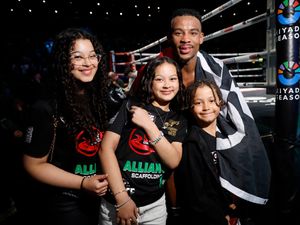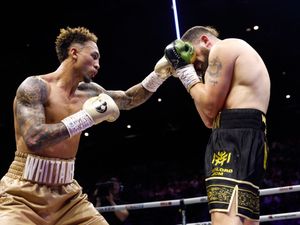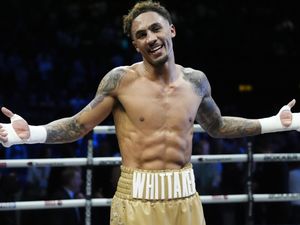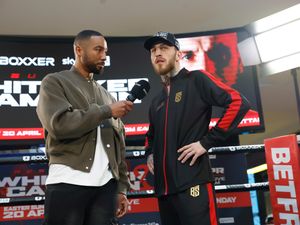Team GB boxing coach is a lion at heart
A Black Country voice has been helping Team GB's boxers reach the gold standard for quite some time and this Olympic Games might prove no different.
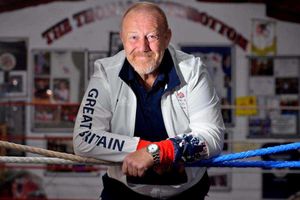
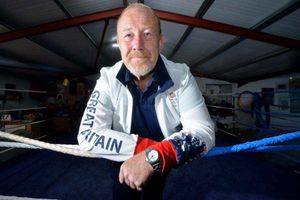
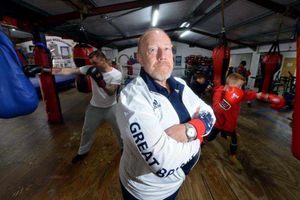
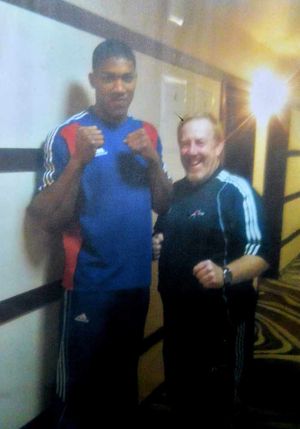
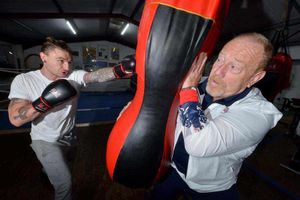
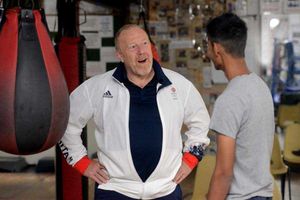
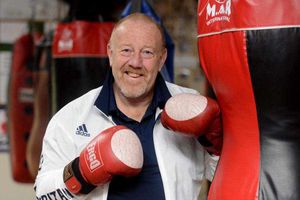
Dudley's Bob Dillon serves as the squad's lead podium potential coach and has just got back from working with the side at Rio 2016, writes Craig Birch.
He cut short his trip to return home for an open day at the gym he founded, Lions Boxing Club in Brierley Hill, and to spend wife Julie's 60th birthday with her.
Back in Rio, Joshua Buatsi has already secured GB's first boxing medal, settling for bronze after a points defeat to Kazakhstan's Adilbek Niyazymbetov.
Joe Joyce and Nicola Adams - the latter looking to become a double gold medalist at this Games - will, at least, emulate that feat.
GB's target of leaving Brazil with three accolades has already been achieved and Dillon can take his share of the credit.
Buatsi, Joyce and Adams all came through his boxing programme, as did most of their immediate predecessors who starred at the Olympics.
He's close to Anthony Joshua, who turned pro to become a world champion after going all of the way at London 2012. He also worked with Luke Campbell, who took gold and then turned over.
James DeGale, who went to Beijing 2008, was another protege who joined the paid game, beating Joshua to becoming the first British Olympic gold medallist to win a world boxing title.
But there's no time to rest on his laurels for the 59-year-old, who is already back to work at the English Institute of Sport in Sheffield.
New prospects need to be brought into the system and prepared for the European and World Championships, with the long-term focus towards Tokyo 2020.
That's where those who fell short in Rio will look to go again, complemented by the fresh blood that has broken through the glass ceiling.

Dillon said: "We've pretty much operated with the thinking of those that medal will turn pro. It's rare that doesn't come to pass.
"Then you've got those that we believed would do very well in the Olympics and haven't, for whatever reason. Sometimes, it's just down to being on the wrong side of a bad decision.
"We've got to pick them up and bring them on again so, hopefully, they get it right next time. You only get so many chances.
"It's my job to help bring through young boxers and there's where a lot of our attention will be going. Talent is identified to work with us.
"There's no favouritism, we go through a process and no stone is left unturned. We start by looking at senior champions, along with those that got to the semis and quarters.
"We have talent days and assessments, while sometimes we offer a six-month trial to see if fighters can adapt to international boxing.
"We look at some youth boxers, so our age range is 17-18 up to about 40, which is the senior limit. Audley Harrison was 29 when he went to the Sydney Olympics in 2000.
"Wales and Scotland both send us their best fighters, too, and then it's down to us coaches to get the best out of them.
"Back in the day, everyone trained together, but the sessions are a lot more tailored now. Everything is planned in advance.
"There's a weigh in at 7am before their morning runs, then training in sections so there's more one-to-one coaching. As a coach, you're normally on the go until 7pm.
"There's plenty of sparring, along with their strength and conditioning work, and we use a lot of video analysis to learn more about their performance.
"We have a physio, so we can treat any nagging injuries accordingly and they can get the right amount of rest.
"It's hard what we do, but that's boxing. It breaks people more than any other sport. Coming here doesn't suit everybody, but it's what you need to do to get to the top."
He won't be in his Rio to see his charges mount the podium but he, again, can reflect on another memorable experience.
He added: "It was totally different to anywhere else I've been, as was Bejing. London was the best for me, with it being a home Games.
"I must tell you that all of the people working with the Olympic movement in Rio have been fantastic and the facilities have been first-class.
"It's effectively their winter, so the conditions haven't been too hot for the boxers. It's a wild and wonderful place - it has that special feeling to it."
Dillon is a three-star AIBA boxing coach and has been employed full-time at the EIS for six years, having previously worked part-time for GB since 1999.
One Black Country cohort now on the fighting team is Darlaston's Benjamin Whittaker, 19, who was picked for the podium squad in May.
None of Dillon's fighters at club level have ever represented GB, despite the Lions alumni containing a host of national champions and internationals.
Andrew Price, James Price, Luke Richards, Ricky Summers and Connor Jones all featured for England, but no further.

Dillon still rates Jones and the late Thomas Hickinbottom - who tragically died aged 14 in 2003 after a freak road accident - among the most talented boxers he's seen first-hand.
He speaks from a lifetime of experience in the game which started when he was 11, at Kinver and then Warley Boxing Club.
He later became head coach for Warley before starting Lions in 2000, which always was and continues to be a family-run establishment.
Julie is treasurer and also an accredited judge while son Kevin, 32, is a trainer. The couple's other child Richard, 40, lives in Thailand and is a property developer.
Then there's the imposing figure of head coach John Shakespeare, who reached a national final himself boxing for Warley in the 1987 senior ABA competition.
Bob can still work the corner at club level and does so for Lions members when his obligations allow. He gave a speech at the open day about what it takes to succeed in all areas of boxing.
He said: "Since the start of 2015, I've been to 18 different countries with my job and I wouldn't have it any other way.
"I've been away with work a lot and it's vital I've had the support of family. When my sons were kids, I was taking other children to box when I should have been watching them playing football.
"I'll be having a go at Tokyo and carrying on for as long as my heart is in it. The first time I get out of bed and don't want to go, I'll pack it in.
"You haven't got to be fighting to be a part of something in this sport. You can contribute to boxing in so many different ways.
"At the club, most of the more experienced boxers are also coaching and bringing the other lads on. Sticking together is the only way to succeed.
"In this game, 99 per cent of them never forget where we came from. Without grassroots boxing, there's no fighters for the Olympics.
"On the flip side, there has to be the rewards on offer for excellence after you've paid your dues. The bottom line is everyone has to start somewhere."


